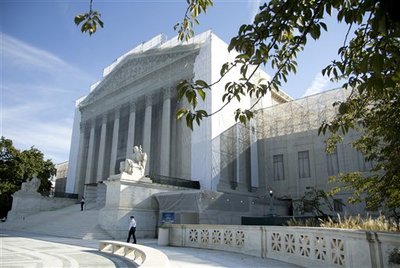The Supreme Court is broadening its examination of affirmative action by adding a case about Michigan's effort to ban consideration of race in college admissions.
Clik here to view.

The U.S. Supreme Court said it would take up a case challenging Michigan's ban on affirmative action in college admissions.
AP photo
The court on Monday said it would add the Michigan case, which focuses on the 6-year-old voter-approved prohibition on affirmative action and the appeals court ruling that overturned the ban. The new case will be argued in the fall. A decision in the Texas case is expected by late June.
The dispute over affirmative action in Michigan has its roots in the 2003 Supreme Court decision that upheld the use of race as a factor in university admissions. That case concerned the University of Michigan Law School.
In response to the court's 5-4 decision in that case, affirmative action opponents worked to put a ballot measure in front of voters to amend the state constitution to outlaw preferential treatment on the basis of race and other factors in education, as well as government hiring and contracting. In November 2006, 58 percent of Michigan voters approved the measure.
Civil rights groups sued to block the provision the day after the vote. In November, the 6th U.S. Circuit Court of Appeals voted 8-7 to invalidate the ban as it applies to college admissions. It did not address hiring or contracting.
The appeals court said the constitutional amendment is illegal because it prohibits affirmative action supporters from lobbying lawmakers, university trustees and other people who ordinarily control admissions policies. Instead, opponents of the ban would have to mount their own long, expensive campaign through the ballot box to protect affirmative action, the court said.
That burden "undermines the Equal Protection Clause's guarantee that all citizens ought to have equal access to the tools of political change," the court said. The 6th Circuit divided along ideological lines, with its more liberal judges in the majority.
In the Texas case, a white student who was denied admission to the University of Texas is suing to overturn the school's use of race among many factors to fill out its incoming freshman classes. The bulk of the slots go to Texans who graduated in the top 10 percent of their high school classes.
The Michigan case is Schuette v. Coalition to Defend Affirmative Action, 12-682.
